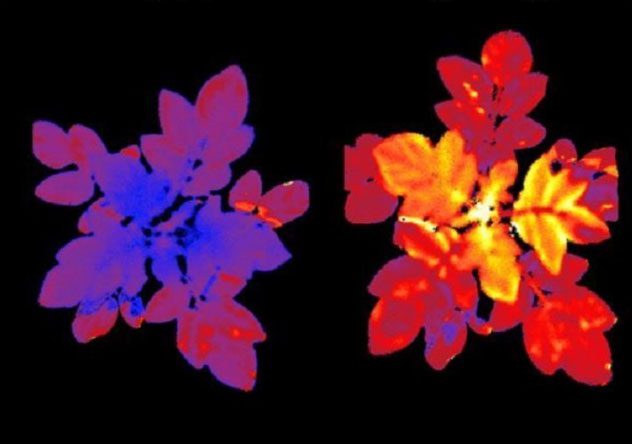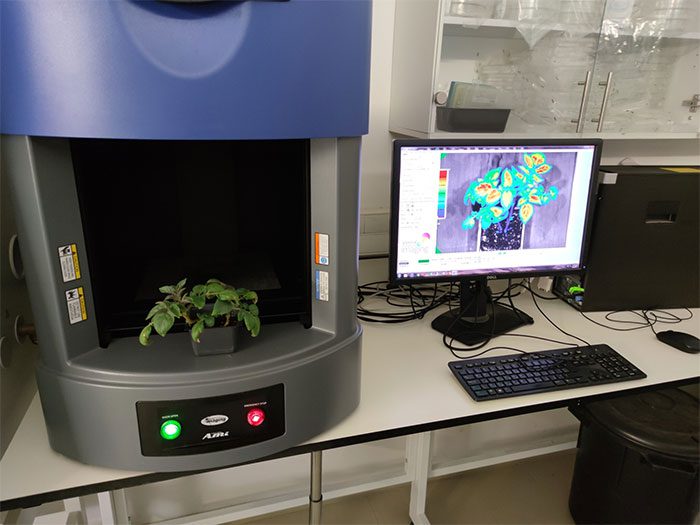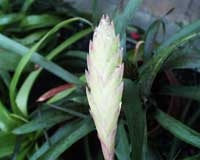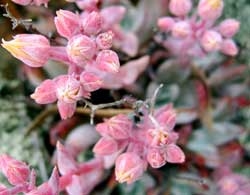Research Team Creates a Miraculous Plant Species That Glows Under Stress.
A team of researchers at the Hebrew University of Jerusalem has successfully genetically modified potato plants to create a species that can glow when stressed.

Miraculous plants glow under stress, poorly developed.
Plants do not have a way to convey their “feelings.” However, one of the biggest challenges in modern agriculture is finding ways to respond to stressors and diseases affecting crops before it’s too late.
The new research conducted by scientists is opening hope for addressing this major issue with the help of advanced genetic techniques.
A research team led by Dr. Shilo Rosenwaser has managed to genetically modify potato plants so that they can glow under fluorescent light when stressed by factors such as drought, extreme cold, or lack of sunlight…
The researchers achieved a remarkable feat by creating a new type of potato that can signal its stress condition by fluorescing at the earliest stages.
The team introduced a new gene into the chloroplasts of the plants, which are organelles found in photosynthetic organisms. The more stressed the plant becomes, the greater the amount of reactive oxygen species (ROS) it produces.
In the case of the genetically modified potato, this means it produces more fluorescent proteins and glows brighter.

Scientist analyzing potato plants in the laboratory.
The fluorescent light emitted by the potato plants is not visible to the naked eye, but scientists can detect it using high-sensitivity fluorescent cameras.
Dr. Shilo Rosenwaser stated, “We can track the fluorescent signals emitted from these biological sensors and observe the accumulation of various reactive oxygen species right at the early stages when the plant encounters stress, such as drought, extreme temperatures, and excessive light.”
The scientists chose to study Irish potatoes because they are a staple crop, accounting for about 40% of Israel’s export revenue, and are very popular worldwide.
In the near future, they plan to expand their research to other key crops, helping to mitigate the issue of crop failure due to climate change.
Last year, researchers at the Massachusetts Institute of Technology introduced bioluminescent watercress, created by inserting DNA from bioluminescent fungi into the plant’s DNA sequence.





















































